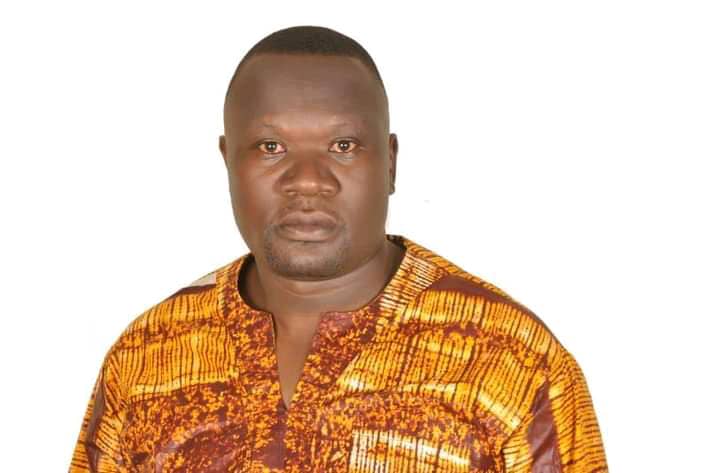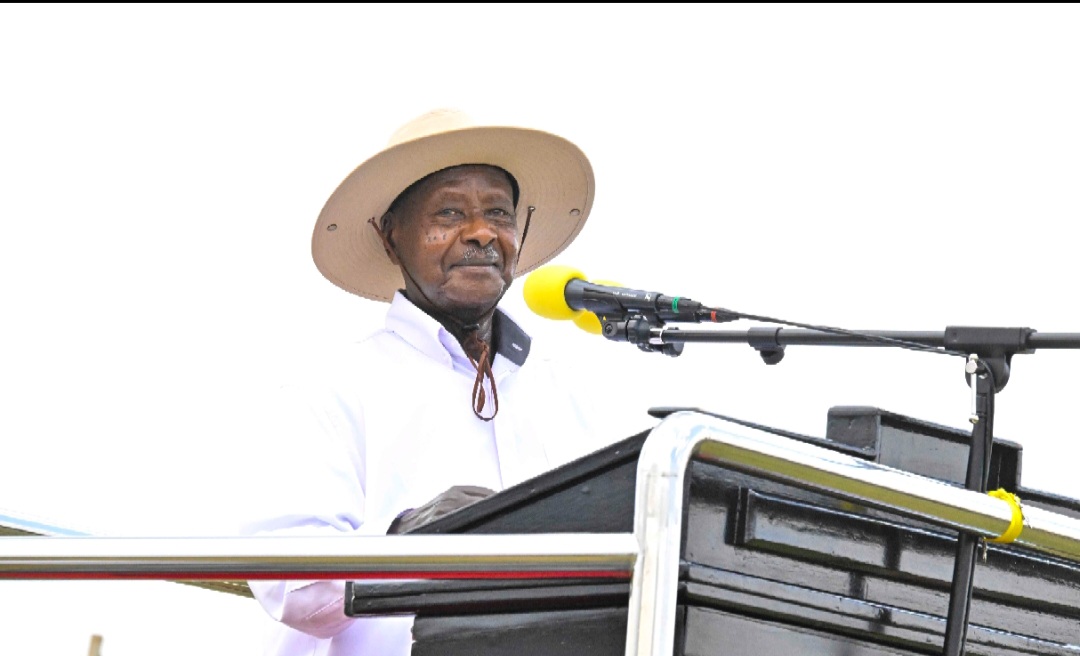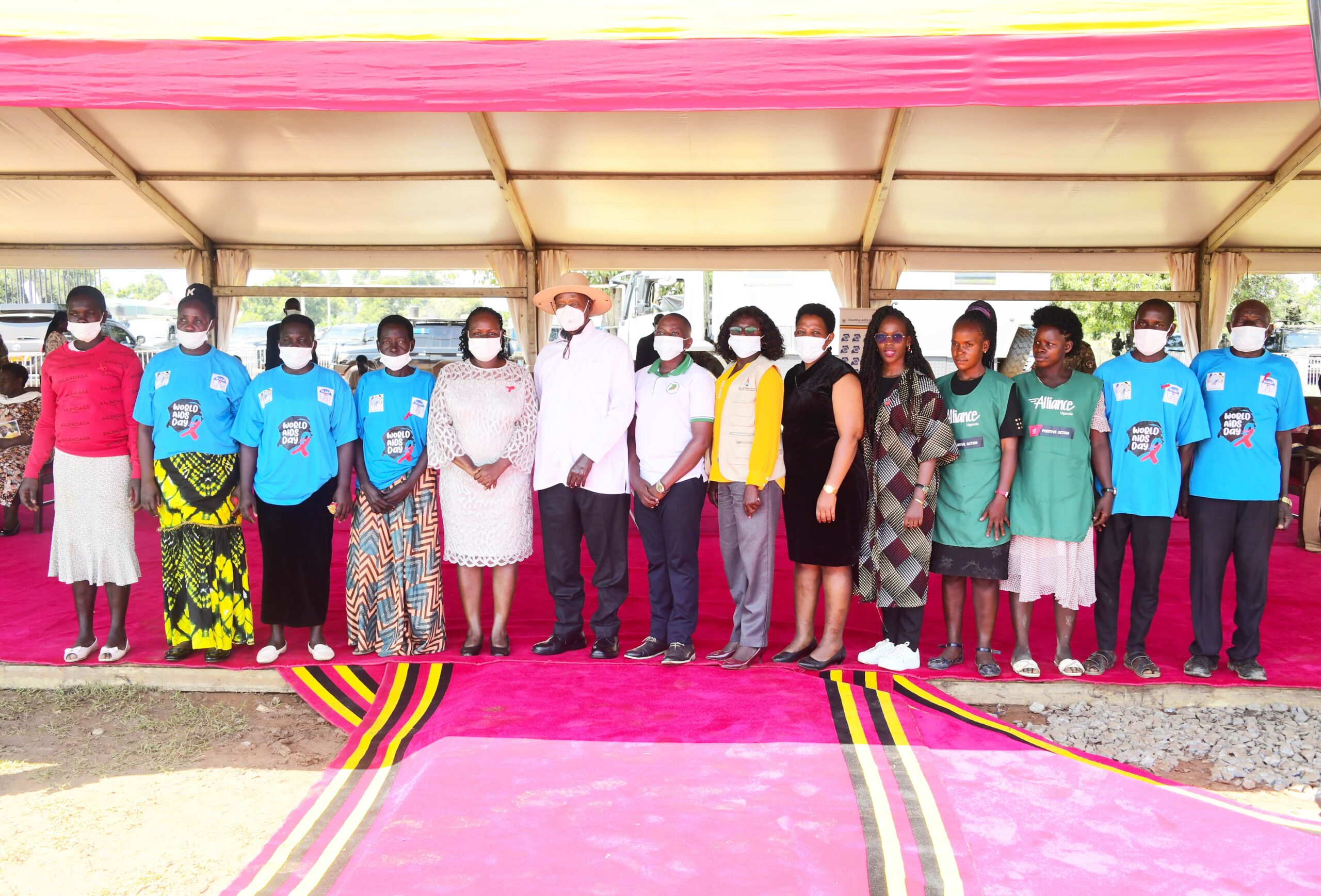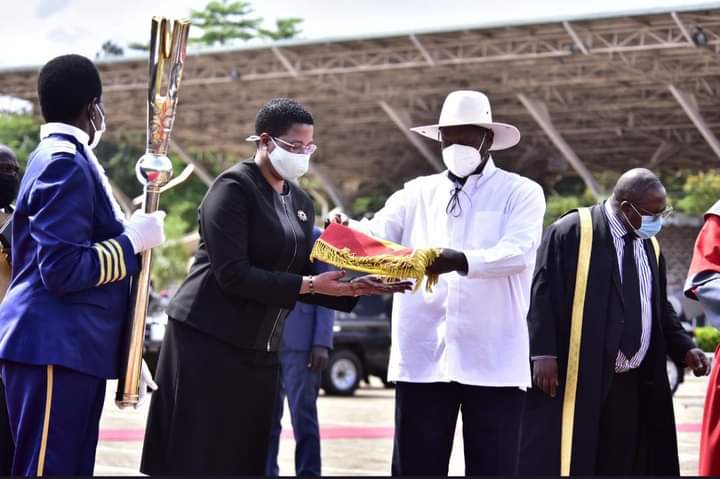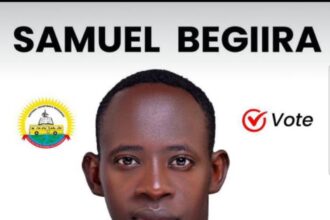As Uganda inches closer to the 2026 general elections, one reality becomes increasingly clear: the opposition, fractured and regionally constrained, is ill-prepared to mount a serious challenge to President Yoweri Kaguta Museveni. The National Resistance Movement (NRM), under Museveni’s leadership, continues to consolidate its grip on power, buoyed by strategic alliances, popular development programs, and a deeply divided opposition whose internal rivalries have become more pronounced than their collective vision for change.
The 2021 presidential election results painted a vivid picture of Uganda’s political geography. Museveni secured 58.38% of the vote (6,042,898 votes), while his closest challenger, Robert Kyagulanyi Ssentamu of the National Unity Platform (NUP), garnered 35.08% (3,631,437 votes). While Kyagulanyi made significant inroads in Buganda and parts of Busoga, his influence failed to penetrate other critical subregions where the NRM remains dominant. In districts like Mbarara (88% for Museveni), Isingiro (94%), Kamwenge (94%), and Kiruhura (99%), the NRM’s support was overwhelming. These figures are not just numbers—they reflect entrenched loyalty, historical ties, and the resonance of Museveni’s policies in these areas.
The opposition’s Achilles heel lies in its disunity. The rivalry between NUP and Forum for Democratic Change (FDC) has escalated into open hostility, with accusations of betrayal, sabotage, and ideological inconsistency flying across party lines. FDC’s internal wrangles, particularly between the Amuriat-led faction and the Kizza Besigye loyalists, have weakened its national appeal with another faction forming out of the Najjanankumbi camp. Besigye, once the face of Uganda’s opposition, had distanced himself from the struggle againstPresident Museveni, creating a vacuum that neither Amuriat nor other party figures coild convincingly fill. Though a leader in the newly formed People’s Front for Freedom (PFF), Besigye is known to have turned down pleas for a significant leadership role.
Meanwhile, Democratic Party (DP), under Norbert Mao, has effectively formalized ties with NRM the NRM camp. Mao’s appointment as Minister of Justice and Constitutional Affairs signaled a strategic alliance that has neutralized DP’s historical opposition stance. Similarly, Uganda People’s Congress (UPC), once a formidable force against PresidentMuseveni, has consolidated cooperation with the ruling party, especially in Lango subregion where NRM’s development programs have gained traction. These alignments have not only fragmented the opposition but have also lent Museveni a veneer of inclusivity, portraying him as a unifier capable of working across political divides.
Personal wars among opposition leaders have further eroded public confidence. Kyagulanyi and Mugisha Muntu, leader of the Alliance for National Transformation (ANT), have clashed over strategy and ideology, with Muntu accusing NUP of populism devoid of structure. Kyagulanyi, in turn, has criticized Muntu’s cautious approach as ineffective in confronting the regime. For the best half of the current term, NUP and Kyagulanyi has spent it fighting with Mathias Mpuuga that organizing themselves for the upcoming elections. These public spats have alienated voters who yearn for a coherent and united opposition front. The lack of synergy among opposition parties has made it impossible to field joint candidates, coordinate grassroots mobilization, or present a unified policy alternative to the electorate.
Geographically, NUP’s dominance is confined to Buganda and parts of Busoga. In the 2021 elections, districts like Wakiso, Kampala, Mukono, and Kayunga leaned heavily toward Kyagulanyi. However, outside this central belt, NUP’s presence is minimal. In Karamoja, Acholi, Lango, West Nile, Ankole, Rwenzori, Bunyoro, and Kigezi, the NRM remains unshaken. For instance, in districts like Bundibugyo (73%), Ntungamo (87%), Kabale (80%), and Kyenjojo (86%), Museveni’s support was overwhelming. These regions are not just vote-rich—they are strategically vital for any candidate seeking national victory. NUP’s failure to establish structures, recruit credible candidates, and address region-specific issues in these areas has left the party vulnerable and regionally isolated.
Adding to Museveni’s advantage is the Parish Development Model (PDM), a flagship program aimed at lifting 39% of Ugandans out of the subsistence economy. The PDM has resonated deeply in rural communities, offering tangible benefits such as access to credit, agricultural inputs, and market linkages. In regions like Bunyoro and Lango, where subsistence farming is prevalent, the PDM has become a game-changer. The program’s rollout has been accompanied by extensive sensitization campaigns, local government involvement, and visible infrastructure development—all of which have endeared Museveni to the electorate.
Moreover, the NRM’s strategic use of SACCOs, Emyooga funds, and youth skilling initiatives has created a network of beneficiaries who view the party not just as a political entity but as a vehicle for economic empowerment. In contrast, opposition parties have struggled to articulate alternative economic models, often resorting to abstract promises that lack implementation frameworks. Museveni’s emphasis on stability, continuity, and gradual transformation appeals to voters wary of abrupt change and political experimentation.
The opposition’s media strategy also lags behind. While NUP has leveraged social media to galvanize youth support, its messaging often lacks depth and policy substance. Viral videos, protest slogans, and emotive appeals dominate its digital footprint, but these do not translate into votes in regions where internet penetration is low and traditional media remains king. The NRM, on the other hand, has mastered the art of local radio engagement, community meetings, and vernacular messaging—tools that resonate with rural voters who form the bulk of Uganda’s electorate.
Another critical factor is the opposition’s failure to build alliances with cultural and religious institutions. Museveni has maintained cordial relations with key religious leaders, traditional chiefs, and opinion shapers across the country. These relationships serve as informal endorsement channels, influencing community perceptions and voting patterns. Opposition parties, particularly NUP, have faced resistance from some religious quarters, with accusations of disrespect, radicalism, and lack of consultation. This has further limited their reach and credibility in conservative regions.
The electoral commission’s structure and the security apparatus also favor the incumbent. While opposition parties have raised concerns about electoral fairness, they have failed to present a unified strategy for electoral reform. Boycotts, parallel tally centers, and post-election protests have not yielded meaningful change. Instead, they have reinforced the narrative of opposition disorganization and reactive politics. Museveni, by contrast, projects an image of order, institutional control, and long-term planning—attributes that appeal to voters seeking predictability and peace.
Looking ahead to 2026, the numbers are not encouraging for the opposition. With Museveni’s base intact in Ankole, Kigezi, Rwenzori, and Bunyoro, and growing support in West Nile and Lango due to development programs, the opposition faces an uphill battle. Even in Acholi, where Norbert Mao once held sway, the NRM has made significant inroads through infrastructure projects and youth programs. The opposition’s inability to field strong candidates in these regions, coupled with internal divisions, makes a nationwide campaign almost impossible.
In summary, President Museveni’s path to another five years is paved not just by his own strengths but by the opposition’s weaknesses. Disunity, regional confinement, lack of policy clarity, and internal rivalries have crippled the opposition’s momentum. Museveni’s strategic alliances, economic empowerment programs, and national reach give him a decisive edge. Unless the opposition undergoes a radical transformation—one that prioritizes unity, grassroots engagement, and policy innovation—the 2026 elections will be a repeat of history, with Museveni emerging victorious and the opposition left to nurse its wounds and rethink its strategy.
The writer is the Deputy Resident City Commissioner for Nakawa Division.
Do you have a story in your community or an opinion to share with us: Email us at Submit an Article



